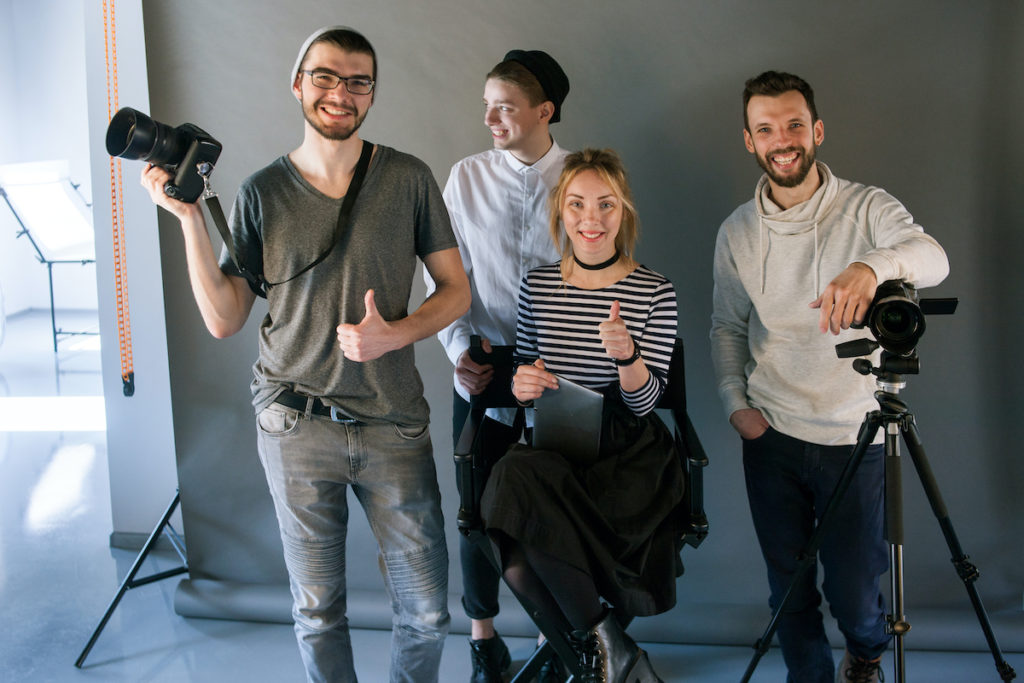Everybody has had to navigate the challenges of the pandemic in their unique ways. Many students are getting used to online classes. Businesses are getting their workers together online and collaborating through various platforms and channels. People from all walks of life are coping with loss and physical distancing through increased social media interactions.
For photographers, the road ahead can be particularly challenging. Photography can be a hobby for some, but it’s also a full-time business for many. Staying at home, you lose access to your studio with its commercial lighting and other invaluable equipment. In any case, you’d have trouble bringing collaborators on board for a typical shoot. Models and assistants might be hesitant when it comes to risking exposure.
There are ways to partially offset the loss of income while you weather the storm. You can still sell prints or stock photos, for instance. But how are you going to improve your photography skill in the absence of your usual shooting opportunities?
Focused learning
Nearly four centuries ago, the Black Death spread from London to Cambridge. At that time, Sir Isaac Newton was a student at Trinity College. The disease forced him to relocate to his family home on a remote farm called Woolsthorpe. Within these isolated conditions, over two years, Newton would produce some of the most significant individual discoveries in the history of science.
Those familiar with this story will immediately draw parallels with our current situation. But it’s debatable whether the plague and subsequent isolation helped Newton to come up with such achievements. What isn’t subject to dispute, however, is the fact that he didn’t let circumstances limit his learning.
The loss of work and social commitments will give you plenty of bandwidth. Due to restrictions, you might not be able to translate this spare time into further practice in your chosen genre of photography. But you can still use it to learn and improve in other aspects.
If you’re not sure how to run a successful business, there are online MBA programs and relevant short courses available. These can help you run the administrative, financial, sales, and marketing aspects more effectively. At the same time, you can also gain insights on how to successfully resume your operations as we enter a transformed normal.

Personal improvement
Of course, spare time can be put to good use in other ways. You can work out those muscles, take full control over home-cooked meals and nutrition, and give your eyes a break from the screen. You can also read a book or dive into a new hobby. But how do these things help your photography?
Your mileage might vary, but personal improvement can easily have a knock-on effect. See to your well-being, and you can approach work with new energy and a stronger mindset. Experienced photographers also know that when you work on location, strong muscles offset the need to carry all that heavy equipment. These benefits are definitely worth the effort.
Engaging in a new hobby or learning a different skill can lead to unexpected benefits. Learning how to sketch or paint can teach you a different approach to aspects such as composition, framing, or choice of subject. Journal writing is another path to improvement. The practice boosts your mindfulness and helps you notice small details. This translates to better creativity and lets you develop a unique sense of storytelling.
Finding meaning
Across all walks of life, people are in search of meaning. They long to be doing purposeful work that’s connected to their passion. They want to be a part of something greater. This is more evident in tedious jobs or dull work environments. But photographers aren’t immune.
Your daily grind could involve far more hours spent meeting with clients, arranging the logistics of a shoot, and laboring on post-processing work. You might end up wondering how to do more of the work you love. Taking on a personal project could be the solution. And these times of isolation can allow you to devote more hours to that.
Meaning can also be derived from putting yourself in service to the community. While your usual photography work might be more commercial, this could be the best time to engage in journalistic photography. Document the world around you from the confines of your home and share those stories. Or use those images to contribute to spreading useful information and positive messages on social media.
Not all improvement in photography comes from practicing with your camera. Get better at other skills, approach your craft from another angle, and rediscover purpose in what you do. These are opportunities you can seize as we figure out living in an uncertain world.

